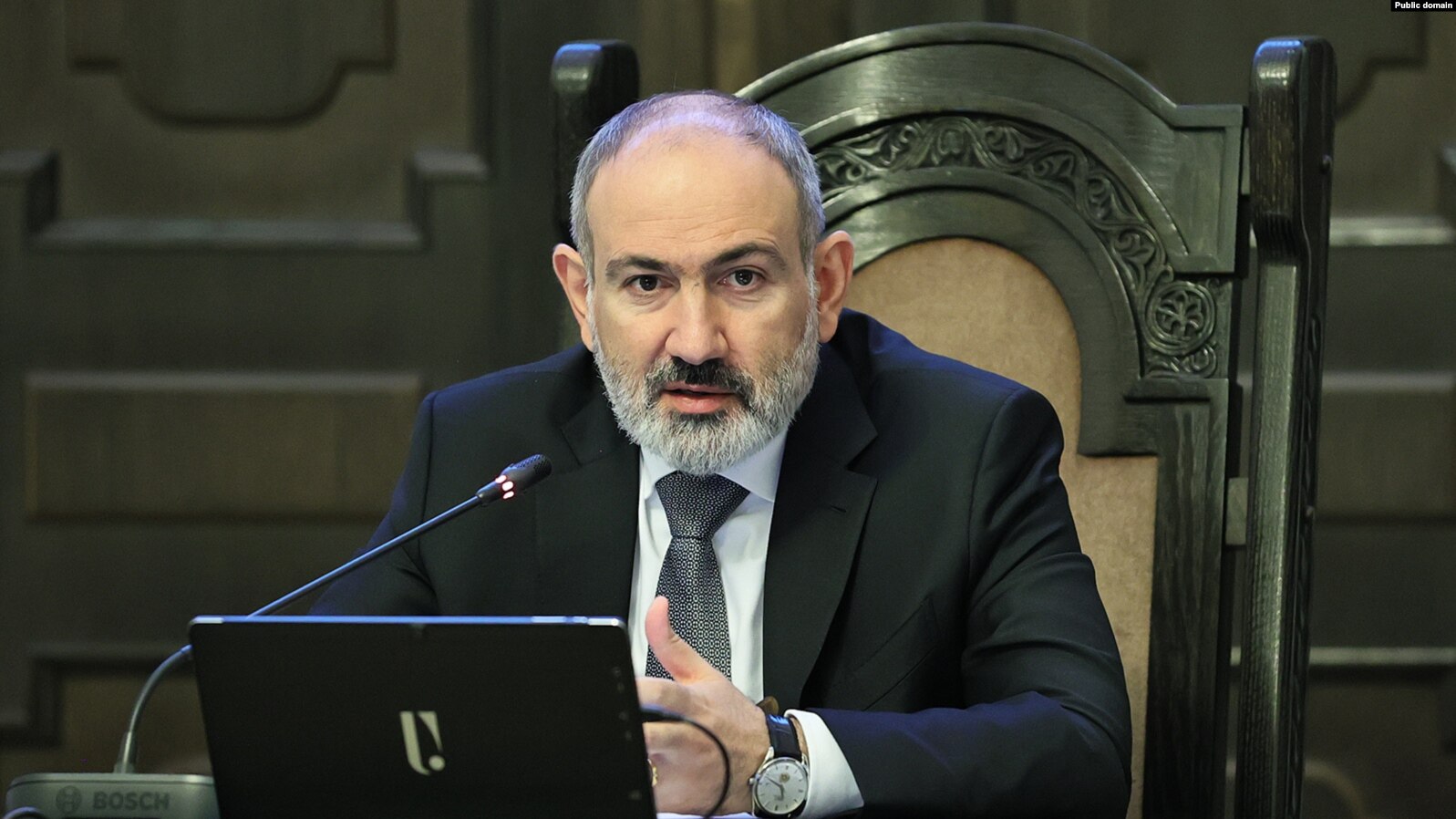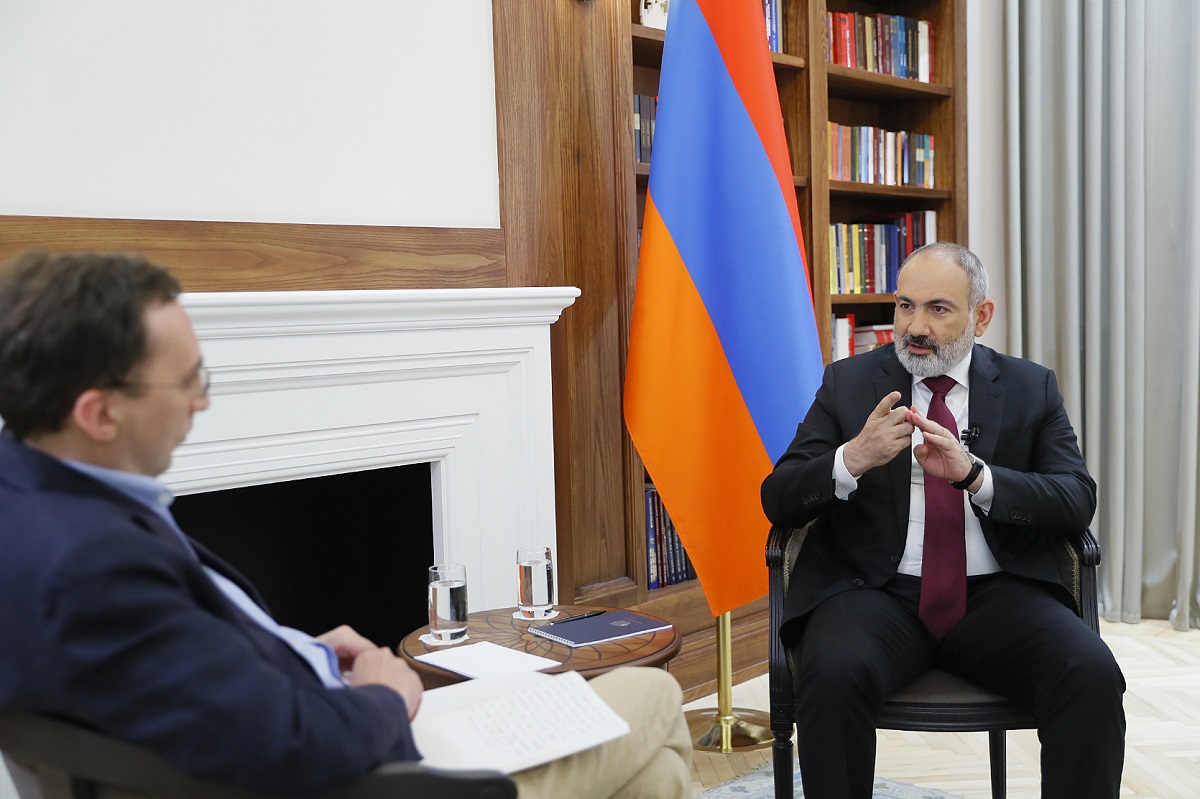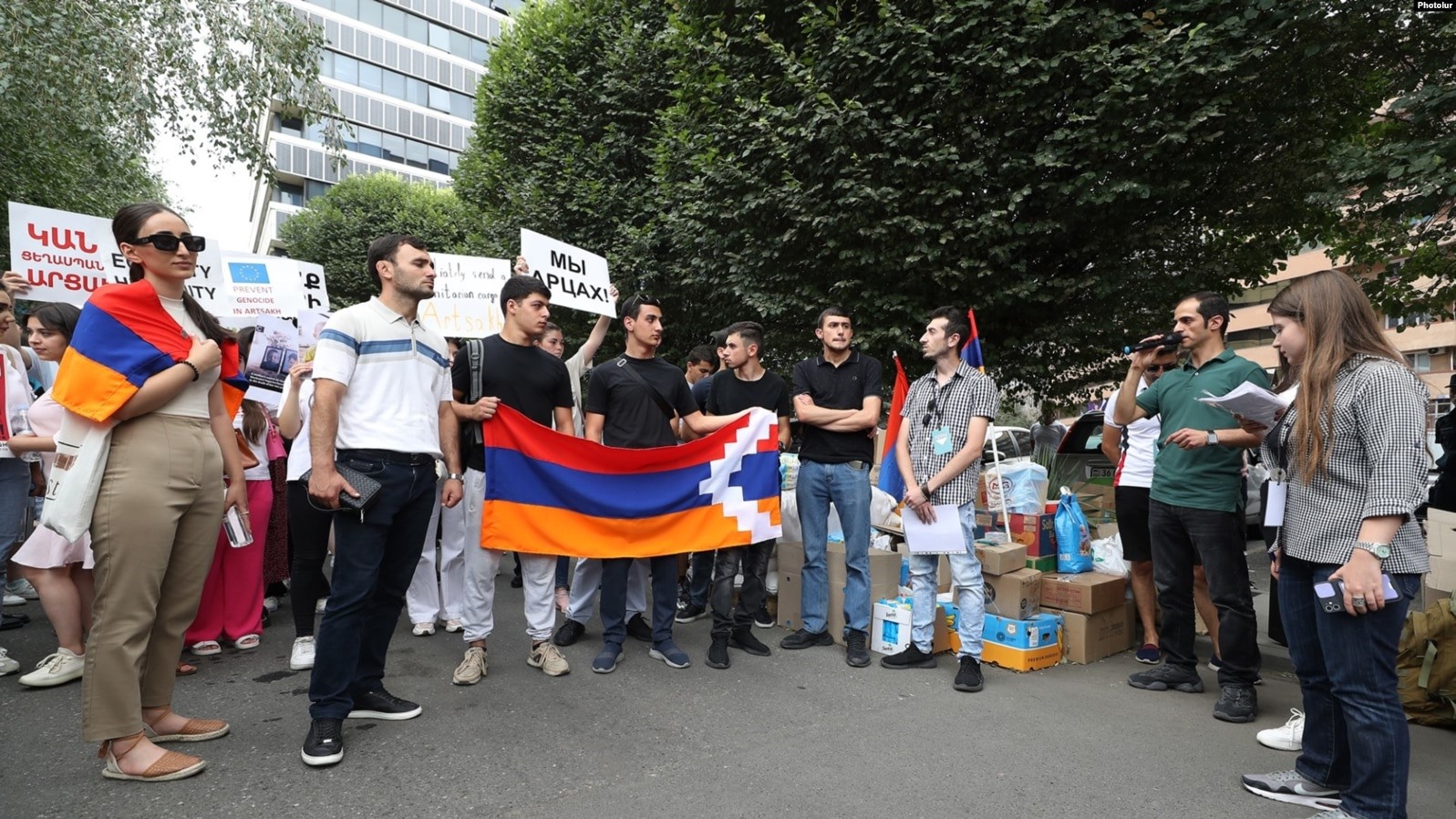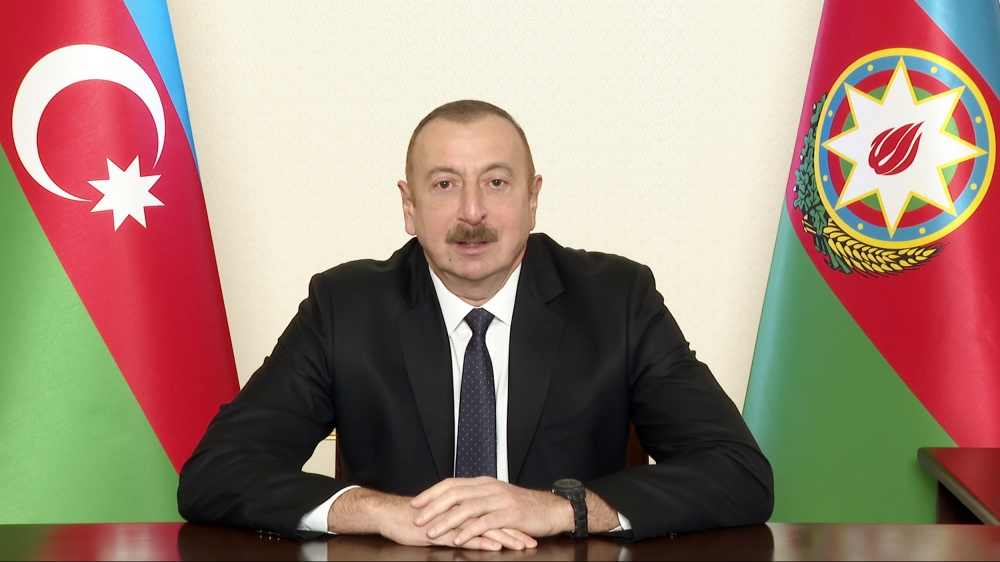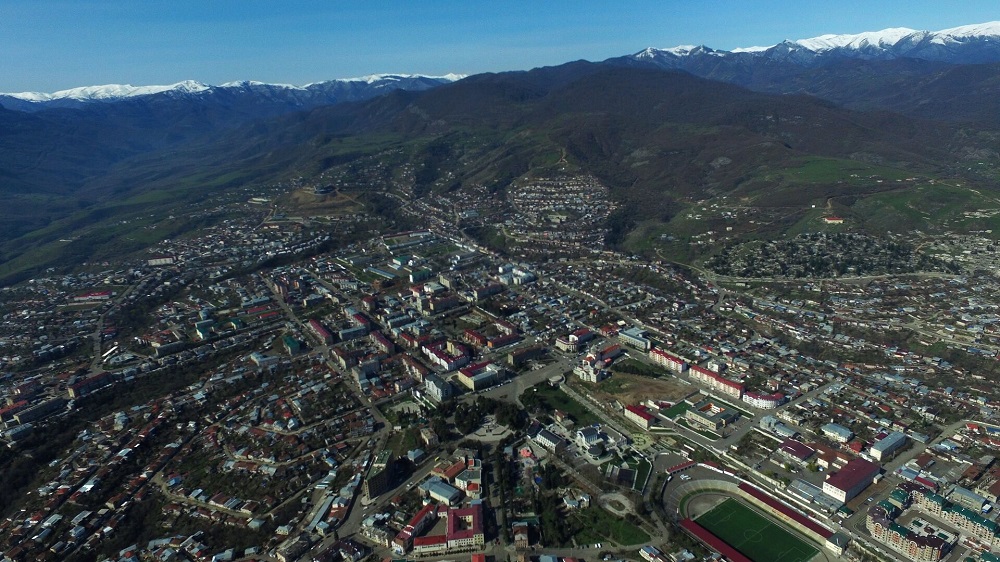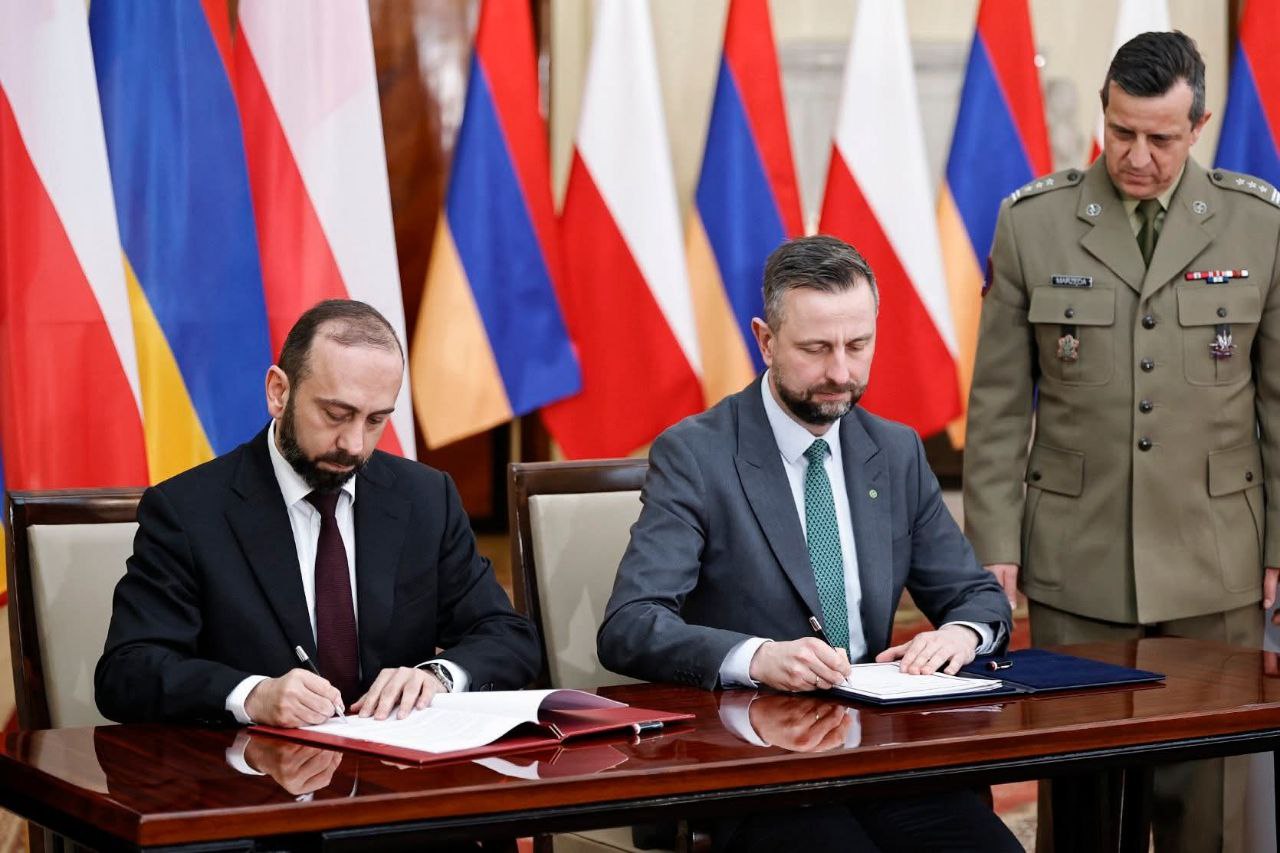Armenia sends humanitarian cargo to NK, Azerbaijan calls it a provocation
Delivery of humanitarian cargo from Armenia to NK
Trucks with humanitarian cargo bound for Nagorno-Karabakh have been in the border zone near the Armenian village of Kornidzor since last evening. With the help of the government of Armenia, the convoy will remain there until “Azerbaijan fulfills the legally binding decision of the International Court of Justice” to ensure unhindered movement along the Lachin corridor. Armenian Deputy Foreign Minister Vahan Kostanyan wrote about this on Twitter.
The column is loaded with food, baby food and medicines, with a total weight of about 400 tons. The Russian peacekeepers, who were asked by the Armenian government to deliver the cargo, have still not complied with it. The Armenian media say that the Russian peacekeeping contingent did not even come up with any explanation for its inaction.
Baku regards the sending of humanitarian cargo to the unrecognized republic as a provocation.
- A positive impetus to the negotiations? Baku and Yerevan on the Moscow meeting of foreign ministers
- Ilham Aliyev: “International law works selectively”
- “There are no difficulties in applying to the UN Security Council” – Pashinyan
Information from Yerevan
On July 26, the Armenian government sent humanitarian aid to Nagorno-Karabakh in 19 trucks — 60 tons of sugar, 40 tons of vegetable oil, 100 tons of flour, 80 tons of pasta, 20 tons of salt, 40 tons of powdered milk, 12 tons of baby food and 9 tons of medicines.
The government reports that on the issue of the delivery of the cargo, “they turned to the Russian peacekeeping forces, as well as through the appropriate channels to the Azerbaijani side.”
A convoy of trucks with humanitarian cargo stands near the border village of Kornidzor in the Syunik region. The vehicles passed the Armenian checkpoint and are still awaiting a response from Russian peacekeepers.
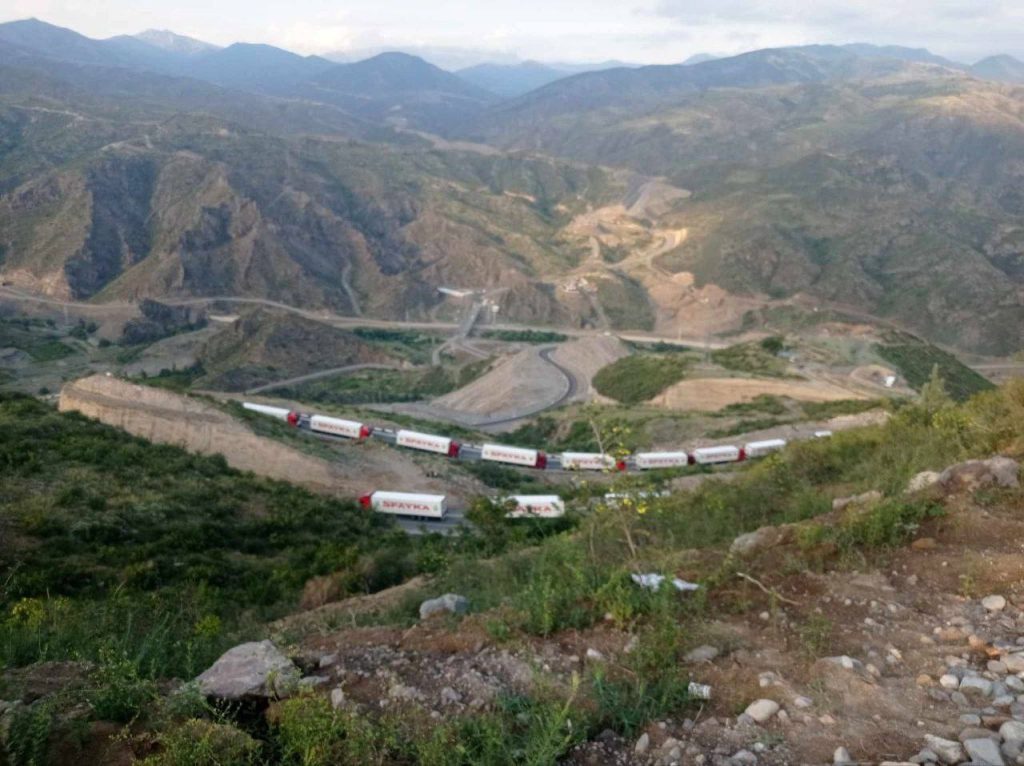
Pashinyan: “We expect a positive reaction from Russian peacekeepers and official Baku”
In a morning government meeting, the Prime Minister of Armenia stated that Azerbaijan was blocking the import of humanitarian goods through the Lachin corridor and Nagorno-Karabakh:
“Is it because the true intention, the goal of Azerbaijan is to starve the people of Nagorno-Karabakh, to subject them to genocide?”
Pashinyan said that the Armenian side is waiting for “a positive reaction from Russian peacekeepers and official Baku.” If Azerbaijan does not allow the humanitarian cargo to be transported, this, according to the prime minister, would only confirm the fears “about the intention to commit the Armenian genocide in Nagorno-Karabakh.” If the cargo is allowed to pass, it would be “a positive step for building confidence and will contribute to efforts to establish peace in the region.”
Pashinyan said that “as a pretext for illegally blocking the Lachin corridor, Baku made the absurd assertion that Armenia uses the corridor for military purposes.” He stressed that the heads of diplomatic missions and international organizations accredited in Armenia managed to get acquainted with the contents of the trucks the day before. After a meeting at the Armenian Foreign Ministry, they examined the cargo that the Armenian government had prepared to send to compatriots “who have been living in blockade for the eighth month.”
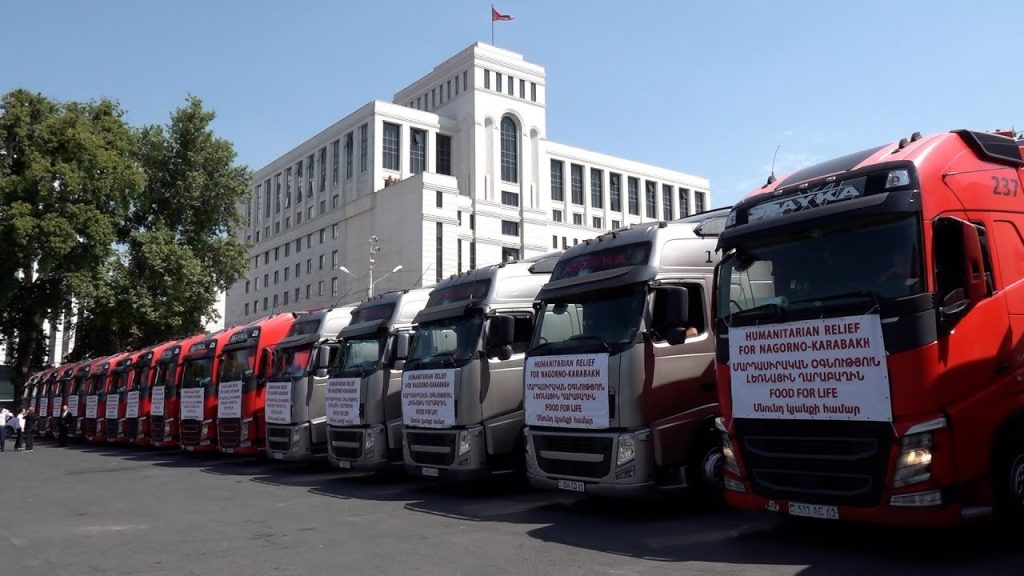
Armenian and foreign diplomats on the delivery of goods
The statements of Armenian diplomats not only speak of the need to unblock the Lachin corridor and let humanitarian cargo through, but also respond to Baku’s reaction.
Deputy Foreign Minister of Armenia Vahan Kostanyan, in his commentary on the situation in the Lachin corridor, also responded to the statement of Hikmet Hajiyev, assistant to the President of Azerbaijan:
“Along with the failure to comply with the decision of the International Court of Justice to ensure unimpeded movement, inhuman and cynical statements were made from Baku that “the game is over” [quotes Hajiyev].”
Earlier, Hikmet Hajiyev also stated that Armenia and Azerbaijan agreed in Brussels on deliveries to NK via the Aghdam route, that is, the territory of Azerbaijan.
This was denied by Armenian Ambassador-at-Large Edmon Marukyan, who stated on air of public television of Armenia that this was “an outright lie.” Marukyan read out the words of the head of the European Council Charles Michel after the meeting of the leaders of Armenia and Azerbaijan:
“I stressed the need to open the Lachin road. I also noted Azerbaijan’s readiness to equally ensure the supply of humanitarian aid through Aghdam. I consider both options important and call for humanitarian supplies from both sides to meet the needs of the population.”
Marukyan focused on the fact that in Michel’s statement there are no words about agreements with Baku. He also said that earlier the Armenian government sent another 500 tons of cargo to NK. This cargo is now in warehouses in the city of Goris, as it also failed to be smuggled through the Lachin corridor.
“At the moment, Armenia is clearly showing that Azerbaijan is lying to the international community that the Lachin corridor is open,” the Ambassador-at-Large said.
Last night, EU High Representative for Foreign Affairs and Security Policy Josep Borrell reaffirmed the EU’s approach:
“We have taken note of the readiness expressed by the Azerbaijani authorities to also deliver goods through the city of Aghdam. This should not be seen as an alternative to opening the Lachin corridor. The Azerbaijani authorities are obliged to guarantee safe and free movement along the Lachin corridor in the near future and prevent further deepening of the crisis.
The EU also notes that the activities of the ICRC in the region have been seriously affected and calls for their full resumption, including medical evacuations and the delivery of humanitarian aid.”
Previously, the the Red Cross stated:
“We cannot deliver humanitarian aid to the civilian population of Nagorno-Karabakh through the Lachin corridor or other routes, including Agdam, despite persistent efforts in this direction. To do this, the parties need to reach a consensus.”
The delivery of the cargo was monitored by the monitoring mission of the EU monitoring the border between Armenia and Azerbaijan. The European observers stayed at the border together with the head of the mission until late in the evening.
“Like you, we also do not know if the Azerbaijani side will allow vehicles through the Lachin corridor to Nagorno-Karabakh. Whatever happens, we will write about it in detail in our report,” the head of the mission, Markus Ritter, told Armenian journalists.
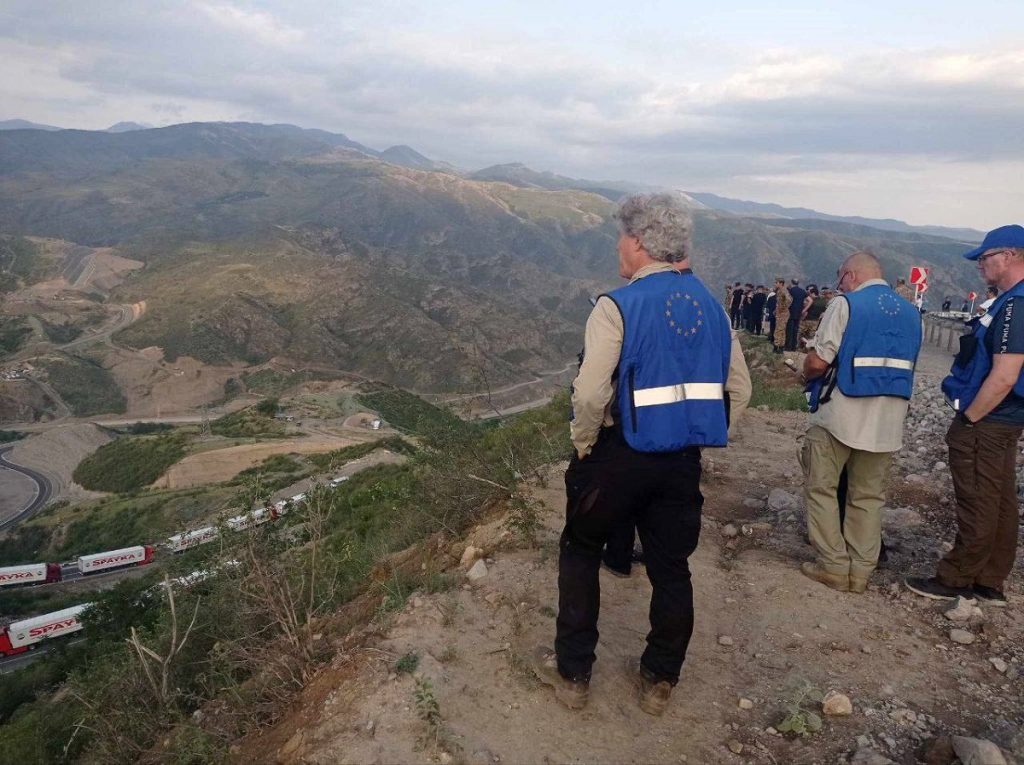
Commentary from Yerevan
According to political scientist Tevan Poghosyan, taking into account the statement of the Russian Foreign Minister after the talks in Moscow, it can be assumed that “perhaps the issue of the delivery of goods was discussed.” However, he does not believe that this will lead to the unblocking of the Lachin corridor, which should operate according to the agreements of November 9, 2020. The political scientist suggests that this could become “the last cry of the Russian Federation.”
Poghosyan suggests that instead of a convoy of trucks, the delivery of humanitarian aid could have been organized by air:
“If we look at international humanitarian law, it indicates that Airlift receives global, full support in the legal field for air rescue. And if Azerbaijan somehow violated it, then this would be the case of the international court on the fact that the plane was blown up.”
The political scientist believes that even if Azerbaijan passes the cargo now, next time it will block it and insist that the transportation be carried out, for example along the Ijevan-Gazakh-Ganja-Barda-Agdam route.
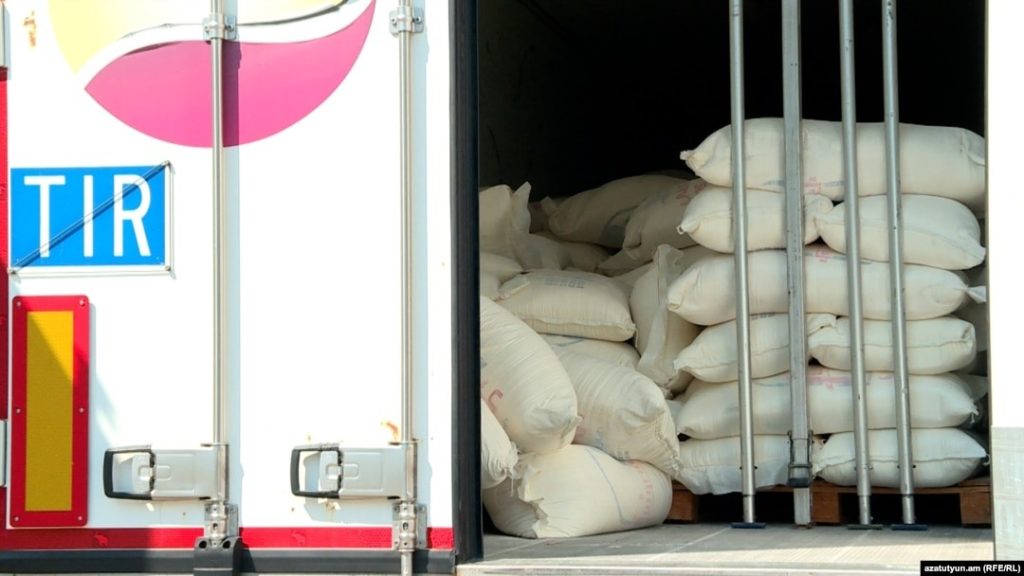
Information from Baku
For the second day, the issue of delivering humanitarian aid to the Armenian population of Karabakh from Armenia remains at the center of attention in Azerbaijan.
For the first time the official position of the country’s authorities on this issue was announced at the moment when the trucks that left Yerevan were on their way to the border between Armenia and Azerbaijan.
The assistant to the President of Azerbaijan met with the ambassadors of several Western countries accredited in Baku and tweeted about the country’s official position:
◼️“Armenia is engaged in political manipulation and speculation on the issue of the Lachin road, which functions for medical evacuations and deliveries.
◼️In Brussels, an agreement was reached that the Agdam-Khankendi road will be used for a larger volume of deliveries. This was also confirmed in an ICRC statement, the presidential aide wrote.
◼️Insist on using only the Lachin road, but abandoning the Aghdam road, blocking the road and politicizing it is unacceptable. The puppet “leaders” of the separatists in Khankendi are holding the local population hostage to their own political ambitions.
◼️Armenia must stop its territorial claims against Azerbaijan, withdraw its troops from the Karabakh region of Azerbaijan and stop funding the illegal puppet regime.
◼️It is necessary to ensure the disarmament of all illegal forces. The international community must send a clear message about the use of the Agdam-Khankendi road and the reintegration of the Armenian residents of Karabakh into Azerbaijan. There is no other way! Game over!”
The Ministry of Foreign Affairs of Azerbaijan also made a similar statement.
“Despite the fact that the Azerbaijani side put forward a number of proposals, including the use of the Aghdam-Khankendi road and other alternative ways to meet the needs of the Armenian residents, and these proposals were supported by the European Union, the International Committee of the Red Cross, the Armenian side opposed all proposals, as well as against the transport of ICRC cargo along the roads indicated by Azerbaijan, hindering relevant humanitarian activities, blocking access to the territory by erecting concrete barriers on alternative roads, which indicates that their statements about the humanitarian situation are political blackmail. These steps, along with the politicization of humanitarian activities, contradict statements about the recognition of the sovereignty and territorial integrity of Azerbaijan.
The mission of the European Union in Armenia and the diplomatic corps also took part in the mentioned provocation, demonstrating that this was a pre-planned step.
We once again demand that Armenia refrain from such provocations.”
Comment from Baku
According to political observer Agil Sadikhov, the delivery of humanitarian aid has its own rules, and they are followed all over the world:
“Firstly, the country itself must declare part of its territory, or the entire territory of the state, as a disaster zone. If a country fails to do so, such an announcement is made by international organizations, first of all by the UN.
Azerbaijan has not announced anything of the kind. On the territory of the country there is a group of residents who refuse to obey its laws, and do not accept help. That’s the whole point of the question.
As for humanitarian aid from abroad, the host country has the right to refuse it even in the event of a natural disaster. We are familiar with many examples when, even after devastating earthquakes, countries refused the help of unfriendly states.
No one can simply send humanitarian aid to the territory of another state because of their prejudices. This is a violation of international laws. Humanitarian aid must be pre-agreed.
Based on the above, Azerbaijan has every right to refuse Armenia the admission of 360 tons of humanitarian cargo to its internationally recognized territory.
Regarding the specific situation, I am almost sure that the trucks at the border will not wait for permission, and will return.”
Delivery of humanitarian cargo from Armenia to NK










